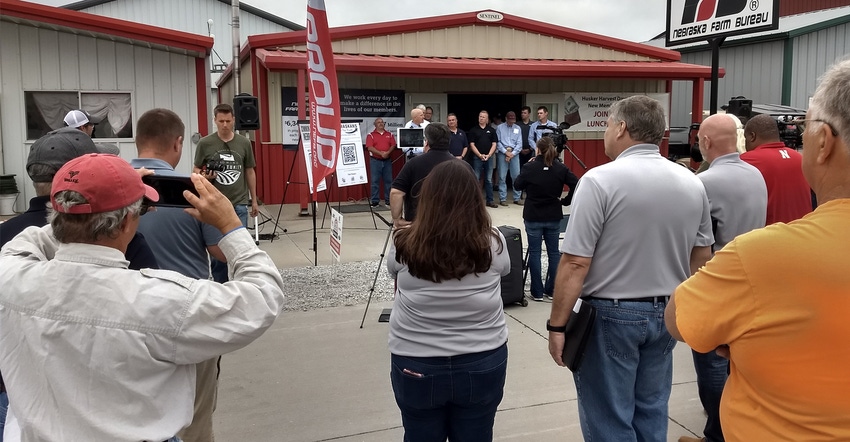December 1, 2021

September 1981 found me entering the first Nebraska LEAD program as the oldest member of the class. My father had died in April, my mother previously, and my three children were “out of the house,” leaving my wife as the sole management person on the farm as I pursued a new learning experience.
I had never flown in an airplane, private or commercial, until my LEAD experiences. Later in life, I earned a private pilot license and enjoyed the blessing of flying alone on a “silky smooth” day.
After the financial jolt of the 1980s, I left farming as an occupation, retaining the real estate, and pursued municipal management as my final career to retirement.
Learn to listen
Most of my career as a city manager was spent in Iowa, leading to my retirement in 2016 and a final move to Lincoln, Neb. I felt it was my duty to “give back” for the massive learning opportunity I was provided through the LEAD experience.
I was known as a “I am right” person, which was quickly challenged by public involvement, and as a manager of “good process,” sometimes was not easily accepted by the residents in my new communities. Thus began the process of more intense “listening” and not as much speaking (two ears and one mouth).
I survived one attempt to remove me from my position by listening to my adviser, reluctantly. He was absolutely correct when he directed me not to say one word of my carefully prepared rebuttal to my mayor and city council at a public meeting.
Upon retirement, I began the search for a better understanding of how to encourage the public to discuss issues, not “shout out” our perspectives on internet platforms or at public forums. In my early research, I decided to title it as “civil discourse,” generally how our mothers told us to act in public.
Hear what others say
I have a tendency to be thinking about my rebuttal comments instead of listening to the content of the other person’s perspective. Such an approach denies the opportunity to “hear” what the other person is attempting to portray. Even as much as I am not in agreement with the other person’s perspective, I am not required to vigorously announce my opposition — just merely acknowledge that I heard what they said.
My perspective is owned by me, and other perspectives are owned by others. Many times, you will hear “my opinion is …” Well, opinions are frequent and sometimes loudly stated. It doesn’t make them a fact or necessarily in the best interest of the group being affected by a proposed action.
I have heard it said that “everyone is entitled to their own opinion, but not to their own facts.” My research has also revealed that “an opinion is the lowest form of knowledge.” I would not suggest revealing that information in the “heat of discussion,” but at the beginning of the discussion.
Listening is the key to civil discourse. It is not about who wins the argument or prevails. I would encourage those of us who engage in the public forum to conduct ourselves in a manner of “civil discourse,” with more listening and offering comments when it adds to the understanding of the issue, not winning the argument.
My experience indicates that public policy is generally best served by listening and compromising. Most of the time, we know what the issues are. We are searching for resolutions and not determining winners or losers. Conducting ourselves in a civil manner is not easy, but I believe it can be a positive force as we, as Americans, seek to create a more civil method to discuss issues.
Clausen is a graduate of LEAD Class 1.
You May Also Like




